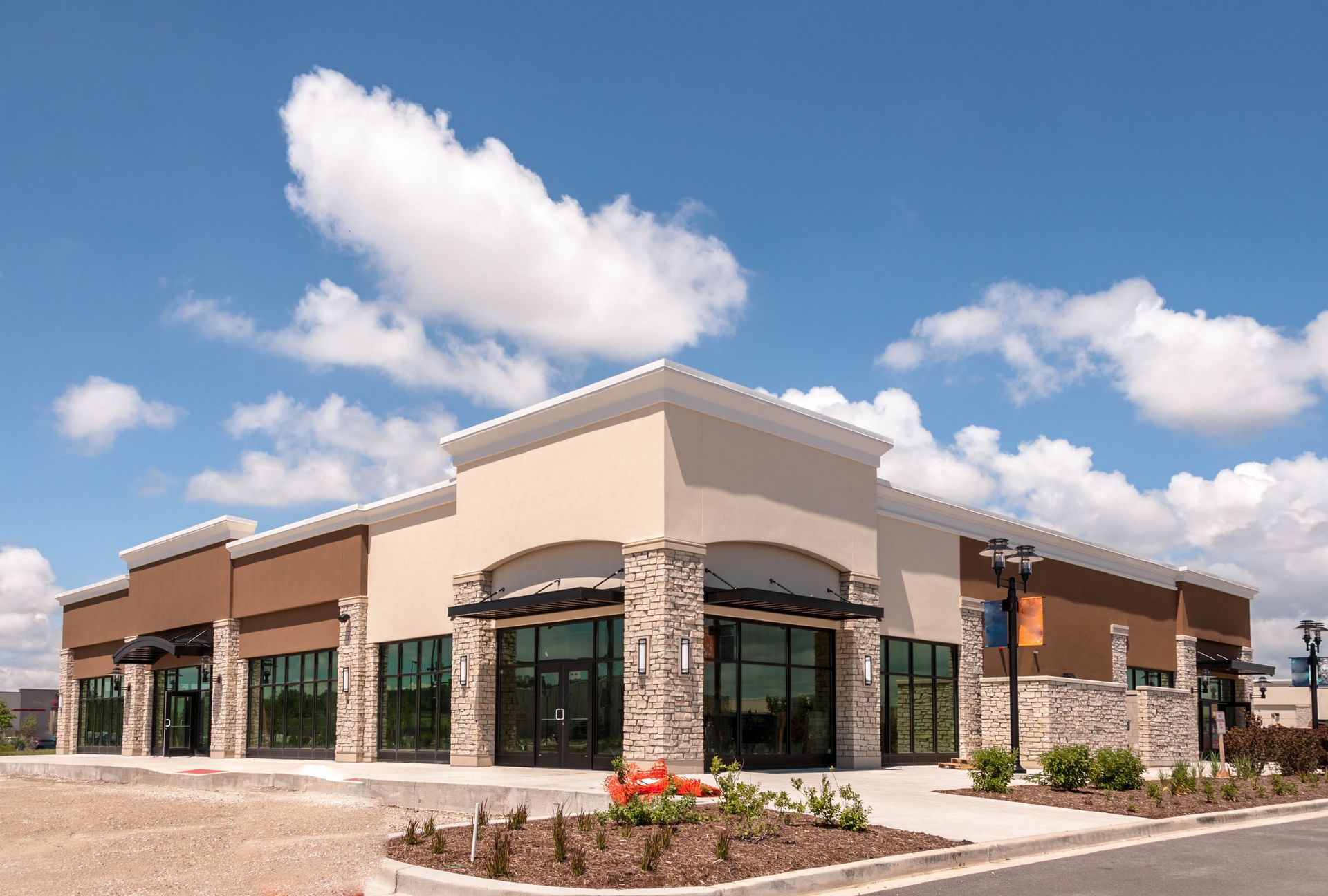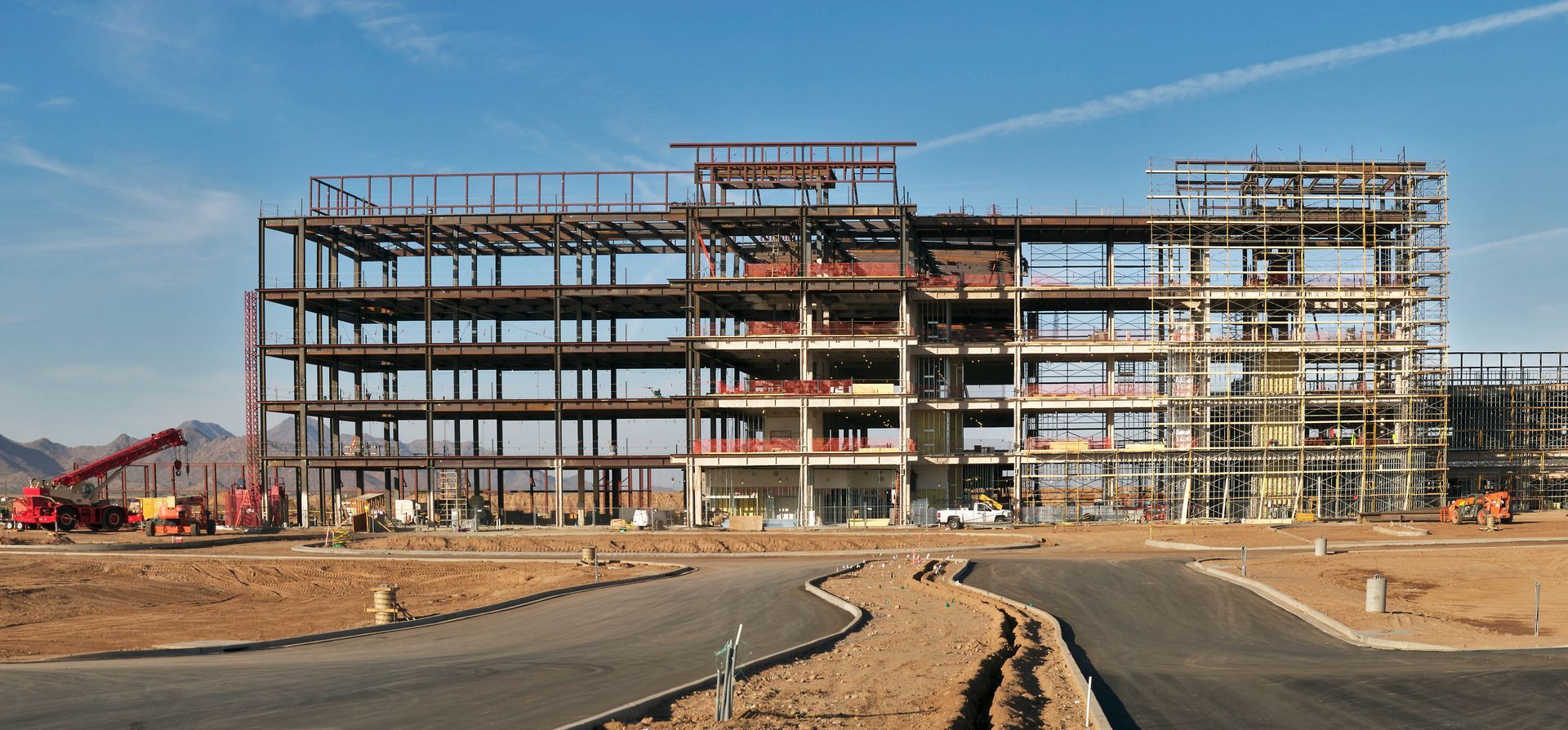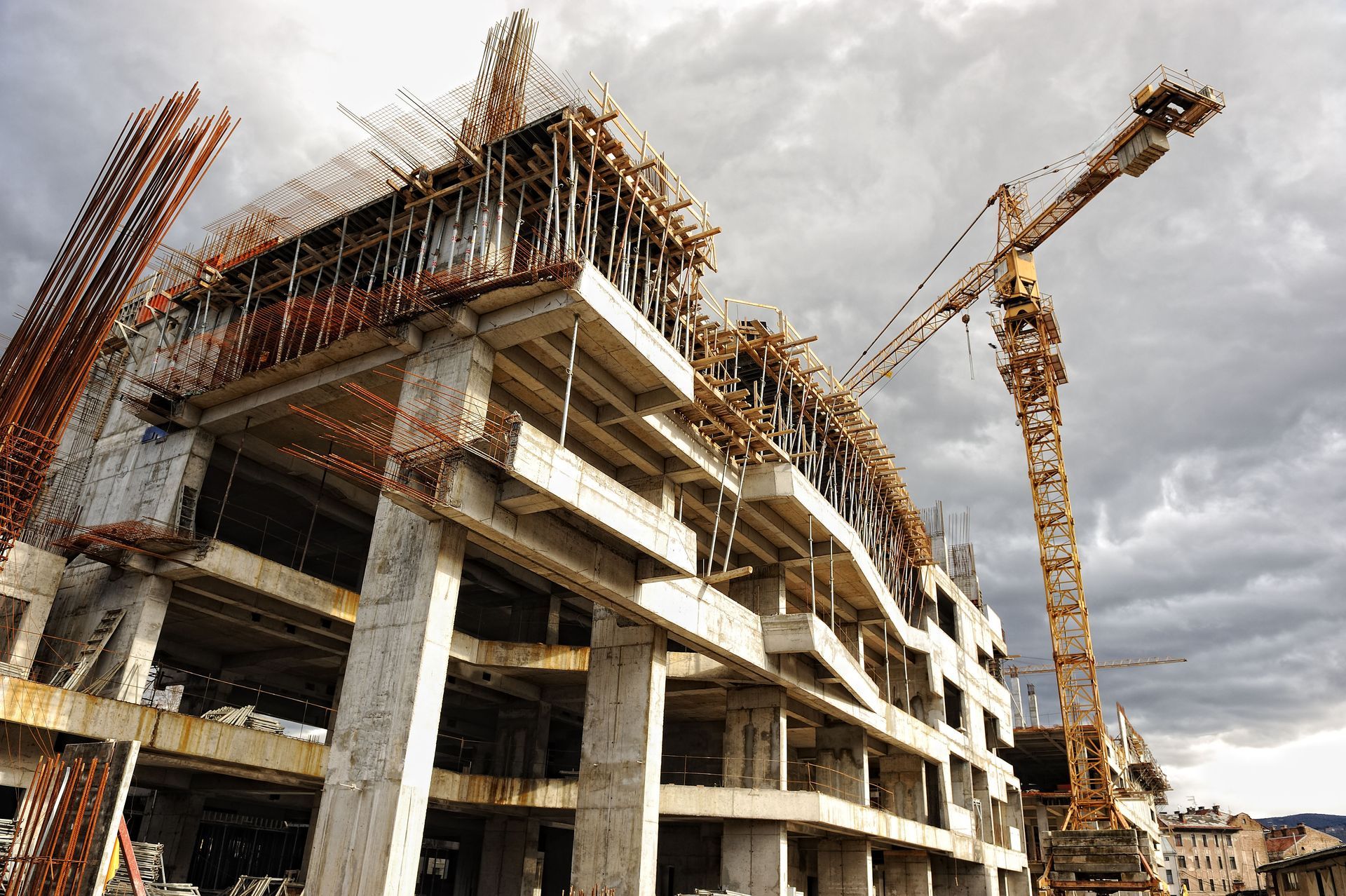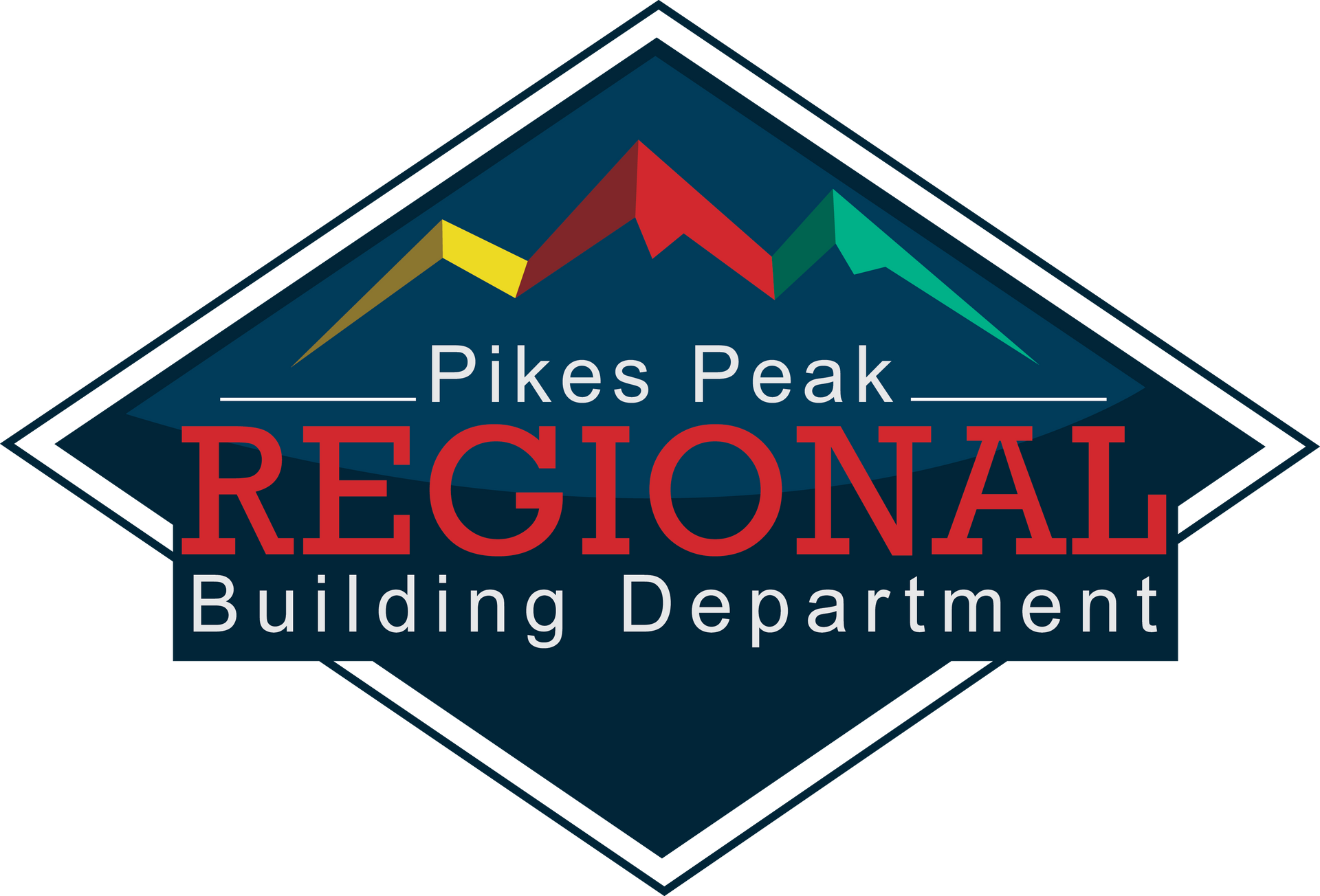What Do General Contractors Do? A Complete Guide
Commercial construction projects are often large, complex, and require extensive coordination. From ground-up developments to tenant build-outs, office renovations, and large-scale facility upgrades, these projects demand a leader who can manage all moving parts. That's where general contractors come in.
General contractors in the commercial sector oversee every stage of a project, serving as the central figure who brings together architects, engineers, subcontractors, and suppliers. Their responsibilities extend far beyond simply managing day-to-day tasks—they ensure compliance, maintain quality, and deliver results on time and within budget. According to Construction Analytics, total construction is expected to increase by 3.8%, highlighting the continued demand for skilled professionals in this role.
In this article, we'll provide a complete guide to what general contractors do in commercial projects, how they manage different aspects of construction, and why hiring the right professional can make a critical difference in your business's success.
General Contractors Oversee Pre-Construction Planning
Every commercial project begins long before ground is broken. General contractors take charge during the pre-construction phase by collaborating with clients, architects, and engineers to create a realistic and workable plan. They review blueprints, conduct site assessments, and identify potential challenges that could affect budgets or timelines.
They are also responsible for securing necessary permits and ensuring compliance with local zoning laws and building codes. In commercial projects, where regulatory requirements are often stricter, this expertise is invaluable. Effective planning sets the foundation for a smooth project execution.
General Contractors Manage Subcontractor Coordination
Commercial projects require a wide range of specialists, from steelworkers and electricians to plumbers and HVAC technicians. General contractors are responsible for hiring, scheduling, and coordinating these subcontractors. They ensure tasks are performed in the correct sequence so the project progresses without delays.
For instance, electrical wiring must be installed before drywall and ceilings are completed in an office building. Without proper coordination, these tasks could overlap, wasting time and resources. General contractors streamline the process, ensuring subcontractors work together seamlessly.
General Contractors Handle Procurement and Logistics
Material and equipment procurement is another critical duty. Commercial projects often require large quantities of steel, concrete, glass, and other specialized materials, as well as cranes and heavy machinery. General contractors handle sourcing, ordering, and delivery to keep everything on schedule.
Their relationships with suppliers allow them to negotiate competitive pricing while ensuring the quality of materials meets commercial-grade standards. In addition, they plan for proper storage and handling on-site, reducing the risk of delays due to shortages or damaged materials.
General Contractors Ensure Compliance and Safety
Safety is a top priority in commercial construction, where job sites are larger and risks are greater. General contractors develop safety protocols, conduct inspections, and enforce industry regulations to protect workers.
Compliance also extends to building codes, fire safety standards, and accessibility requirements. Failure to meet these obligations can result in costly fines or even project shutdowns. By keeping compliance and safety at the forefront, general contractors protect both the workforce and the client's investment.
General Contractors Manage Commercial Budgets
Budgets for commercial projects are often substantial, covering materials, labor, equipment rentals, and unexpected contingencies. General contractors carefully monitor expenses and allocate resources to ensure financial discipline.
They provide clients with detailed estimates, track ongoing costs, and adjust budgets when necessary to avoid overruns. By acting as financial stewards, they ensure projects remain profitable for investors and affordable for clients.
General Contractors Keep Projects on Schedule
Time is money in commercial construction. Delays can lead to lost revenue for businesses waiting to move into new spaces or disruptions for tenants in renovated buildings. General contractors establish clear timelines, monitor progress daily, and make adjustments as needed to keep everything on track.
For example, a retail store may have a set opening date tied to seasonal sales. A skilled general contractor ensures all trades are coordinated to meet that deadline, avoiding costly setbacks that could affect the client's bottom line.
General Contractors Solve Problems Quickly
Unexpected challenges are a reality in commercial construction. Weather delays, supply chain disruptions, and design conflicts can arise at any time. General contractors serve as problem-solvers, making quick decisions to minimize disruption.
Whether it's sourcing alternate materials, adjusting schedules, or working with engineers to resolve technical conflicts, their ability to adapt is essential. Their problem-solving skills help projects move forward without compromising quality or safety.
General Contractors Maintain Quality Control
Commercial spaces must meet high standards for durability, safety, and appearance. General contractors oversee quality control by inspecting each phase of construction and verifying that work meets specifications.
This includes ensuring structural integrity, proper installation of mechanical systems, and high-quality finishes that align with the client's expectations. By holding subcontractors accountable, they deliver a finished product that reflects professional standards and supports long-term functionality.
General Contractors Communicate With Stakeholders
Large commercial projects often involve multiple stakeholders, including property owners, investors, architects, and sometimes tenants. General contractors act as the central communicator, providing updates and keeping everyone informed.
They translate complex construction details into clear information, ensuring that stakeholders understand timelines, costs, and project progress. This transparency builds trust and helps avoid miscommunications that could otherwise delay or derail a project.
General Contractors Manage Documentation and Reporting
Commercial construction projects require extensive paperwork, and general contractors are responsible for keeping it all organized. They maintain contracts, permits, inspection reports, change orders, and progress records throughout the project. This documentation ensures that every decision and adjustment is properly recorded, protecting both the client and the contractor.
Reporting is another critical duty. General contractors provide stakeholders with regular updates that track expenses, timelines, and milestones. These reports keep property owners, investors, and project managers informed, reducing misunderstandings and making it easier to make quick, informed decisions when issues arise.
General Contractors Deliver the Finished Project
The final phase of a commercial project involves more than turning over the keys. General contractors complete final inspections, correct deficiencies, and ensure that all systems—such as HVAC, plumbing, and fire safety—are fully operational.
They also provide the client with documentation, warranties, and maintenance recommendations. This handoff ensures that the space is not only completed but ready for immediate use, whether it's an office building, warehouse, or retail space.
By managing documentation and reporting with precision, general contractors create transparency and accountability. This attention to detail not only helps projects run more smoothly but also provides a reliable record for future maintenance, audits, or expansion.
General contractors play a vital role in commercial construction. They plan projects, coordinate subcontractors, manage budgets, enforce safety, and deliver high-quality results on time. With total construction expected to increase by 3.8%, their expertise is becoming even more critical for businesses undertaking new builds, renovations, or expansions.
The value of hiring general contractors lies in their ability to streamline complex projects, protect investments, and deliver spaces that meet the highest standards of quality and compliance. For business owners, developers, and investors, choosing the right general contractor can make the difference between a smooth, successful project and one plagued by delays and overruns.
If your company is planning a commercial construction project, don't leave success to chance. Contact our team at Ed Green Construction today to discuss your vision and discover how their experience can bring it to life with confidence and efficiency.








Share On: